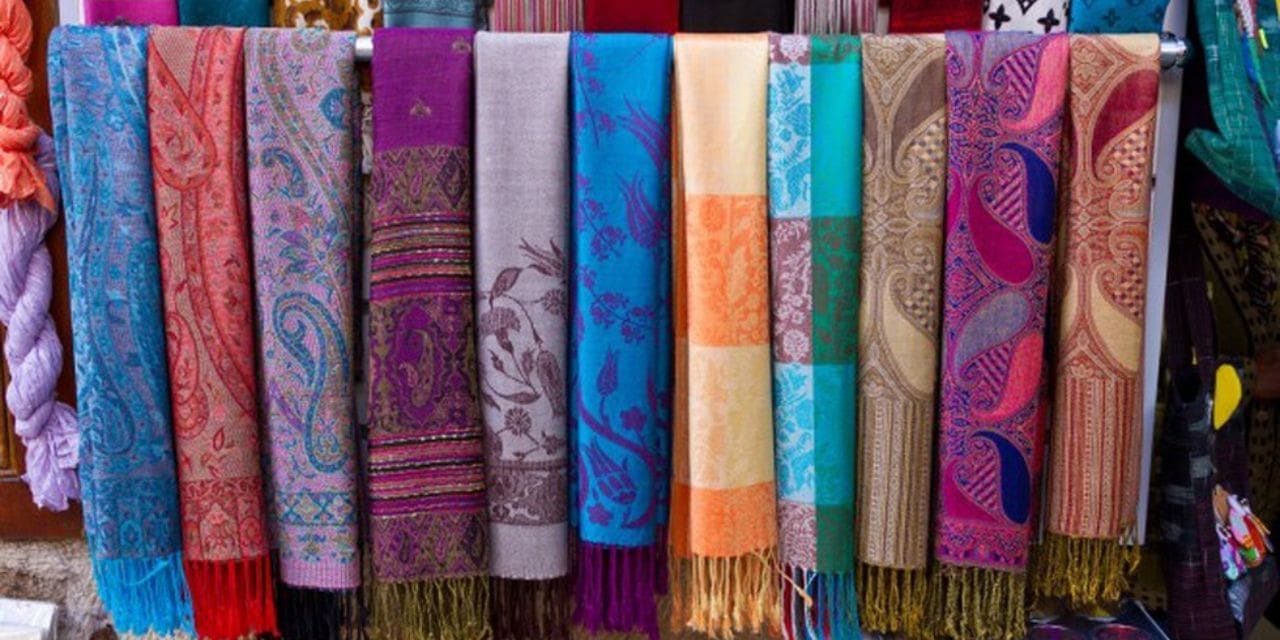As one ventures into the realm of luxury textiles, the term ‘Pashmina’ invariably surfaces, often leading to misinterpretations and misconceptions. Pashmina, a name synonymous with luxury and comfort, is often mistaken for merely a soft fabric. But Pashmina, in its authenticity, offers much more than mere softness. It represents an exclusive legacy that is deeply rooted in the verdant valleys of Kashmir.
The Origin of Pashmina:
Pashmina’s origin can be traced back to the serene Himalayan region of Kashmir. It owes its name to ‘Pashm’, the wool produced by a special breed of goats known as the Changthangi or Pashmina goats. These goats brave the harsh winter temperatures of up to -40 degrees Celsius and are found in the higher altitudes of Ladakh and the Tibetan plateau. It’s this ‘Pashm’ that forms the raw material for the world-renowned Pashmina shawls.
The Pashmina Production Process:
The production of Pashmina is a labor-intensive process that skillfully combines tradition and craftsmanship. Harvesting the raw ‘Pashm’ is the first step of this elaborate journey, which is usually done either by combing or shearing the Changthangi goats, ensuring no harm comes to these hardy creatures.
Once the ‘Pashm’ is collected, it undergoes rigorous processes of cleaning, sorting, and spinning before it is ready to be woven. Each step is meticulously executed by hand, with the experienced Kashmiri craftsmen transforming this fine wool into a thing of beauty.
Creating a genuine Pashmina shawl is no mean feat and can take anywhere from 15 days to one year (or even more!), depending on the complexity of the design. This time-intensive craftsmanship stands as a testament to Pashmina’s exclusivity, underlying its distinct charm and allure.
Two Common Misconceptions about Pashmina:
One common misinterpretation is that Pashmina refers to any soft fabric. This isn’t true. Pashmina is not a generic term but a specific type of wool – a fine cashmere wool handspun, woven and crafted solely in the Kashmir region.
Moreover, the term ‘Pashmina’ is often wrongly used to describe shawls made from other types of wool or synthetic fibers. It’s crucial to know that real Pashmina is made exclusively from the ‘Pashm’ of Changthangi goats, and its quality and texture are unmatched by (most) other fabrics.
According to Shawlovers , many tourists that visit India and Nepal get the wrong impression about Pashmina from sellers who wish to overprice soft synthetic shawls, and even though these shawls often do have nice qualities of softness, lightness, and warmth, these are certainly not real pashminas.
It’s important to mention that the misconception about pashmina isn’t exclusive to these sellers only; if you search online for “pashmina shawl” you’ll find plenty of results, usually starting at 500 INR or less!
This mistaken belief impacts the whole authentic pashmina industry, from herdsmen to artists and all way up to the real pashmina sellers.
The Value of Real Pashmina
The true value of Pashmina lies not only in its luxurious touch and elegant appeal but also in its inherent quality and the meticulous craftsmanship it entails. Authentic Pashmina is incredibly warm yet exceptionally light, with a texture that is unparalleled.
The time, skill, and effort invested in creating each piece, coupled with its rarity and the harsh conditions in which the Changthangi goats survive, further enhance its worth. A genuine Pashmina shawl, with its unique weave and design, truly encapsulates the spirit of Kashmir, rendering it invaluable.
The Protection of Pashmina
Given its exclusivity and cultural significance, efforts have been made to protect and promote the traditional Pashmina industry. The Geographical Indications of Goods Act provides the much-needed recognition and protection, marking Pashmina as a unique product of a particular geographical area – Kashmir. There are also ongoing initiatives aimed at safeguarding the interests of the artisans and the welfare of the Changthangi goats, thereby ensuring that the legacy of Pashmina continues to thrive.
Pashmina: Beyond Fabric, A Legacy to Appreciate
Pashmina is a symbol of elegance, a token of dedicated craftsmanship, and an enduring narrative of Kashmir. Understanding and appreciating its authenticity allows us to value not just a fabric, but a precious cultural legacy that stands for artistry, resilience, and dedication.

